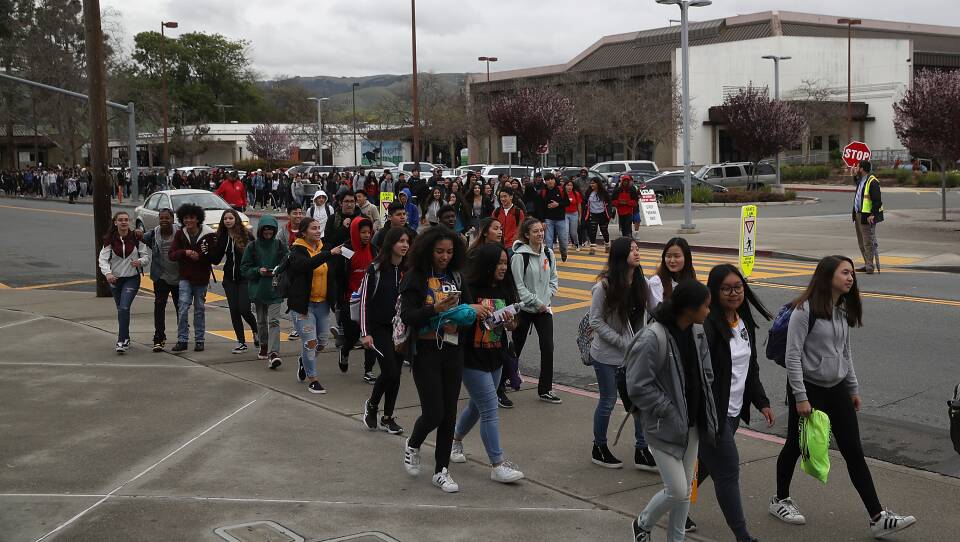As we begin a new year, we mourn the loss of those murdered. Just like the 43,368 families mourning the loss of a loved one’s life taken by gun in 2021 , I honor the memory of my own son, Louis D. Brown, who was killed in a fatal crossfire shootout 28 years ago this month. Louis was only 15 years old. Since then, I have led the Louis D. Brown Peace Institute, principled in Louis’ commitment to the community, and to bring much-needed healing to families like mine.
After two decades, there is still a lot of work to be done, especially as we reflect on how we are keeping our children safe from homicide and gun violence.
Every year, nearly 8,000 children and teens are shot by a firearm in the United States. Of those, 1,663 die ; 58% of which are homicides . According to Everytown for Gun Safety , 76% of gun-related deaths among children and teens in Massachusetts are homicides, highly concentrated in urban areas. Black children and teens are seven times as likely as their white peers to die by gun homicide in Massachusetts, and 14 times as likely in the nation overall.
We need to remember that these are not just numbers on a page. These are lives, ambitions, families, stories left unwritten. In Kansas City , a 4-year-old boy who loved dinosaurs and basketball was killed by a stray bullet as he napped on the floor of an apartment. In St. Louis , a 9-year-old boy was killed by an alleged teenage gunman who opened fire on the boy’s family car. In Minneapolis , a 9-year-old boy was caught in the crossfire and killed as he jumped on a trampoline.
These heartbreaking stories go on and on as homicide rates in America hit record highs in 2020 and continue to rise in too many of our cities. America has a gun violence problem. The city of Boston is not immune to this epidemic. Though we resisted the national uptick in violent crime, we still saw 40 homicides in 2021. That is hundreds of survivors who, every day, experience the untimely loss and pain of having lost a loved one to homicide.
Our efforts as a nation to keep our children safe have failed. The reasons why are myriad: poverty, mental health, lack of career resources, high housing costs and gun availability. In 2020, we added to this overwhelming mix with a global pandemic and unrest in the wake of George Floyd’s murder that intensified already strained community-police relations. The result was a 29% rise in murders in the United States in 2020 — the largest increase on record since the FBI began recording these statistics in 1960. Imagine how these numbers will continue to increase in 2022 without the adequate resources put in place.
With such a high human toll, it’s beyond time that we explore ways to rebuild our traumatized communities and stop these heartbreaking cycles of violence. We must invest in social services to support families impacted by gun violence. We must invest in programs that provide counseling, education and healthcare — including mental health and spiritual wellness.
The Louis D. Brown Peace Institute and the city of Boston have been long-standing partners in creating a comprehensive and holistic network that promotes peaceful resolutions and provides the community the skills and tools to respond equitably and effectively to families dealing with murder, trauma, grief and loss. As a result of these efforts, 452 survivors in Boston have received compassionate and dignified responses to murders in their families from January to October 2021.
My lived experiences and commitment to evolving the way society responds to homicide has helped me build our practice to provide healing to communities and families affected by homicide. Imagine what we could achieve if only we taught our children how to address the root causes of violence and homicide through peace, healing and reconciliation.
While the number of children and teenagers murdered on American streets has only increased over the years, there has been little change in the way our governing institutions respond to such events. The rising murder rates, especially in communities of color, are their own pandemic.
We must reverse these negative trends and end these agonizing cycles of violence. In order to do this, we need to transform the narrative with a new approach that aims to interrupt the crisis of gun violence through media, arts and communication. It will take the collaboration of elected officials, educators, community leaders, police officers, social workers, mental health and substance abuse providers, criminal justice professionals, the multi-faith community and families to work together to make our streets safer so we can stop burying our children.
For widespread change to take place, it is important to build the capacity and the proper infrastructure to support the next generation.
Clementina M. Chéry, known to her friends as Tina, is the founder of the Louis D. Brown Peace Institute, which is headquartered in Dorchester.






